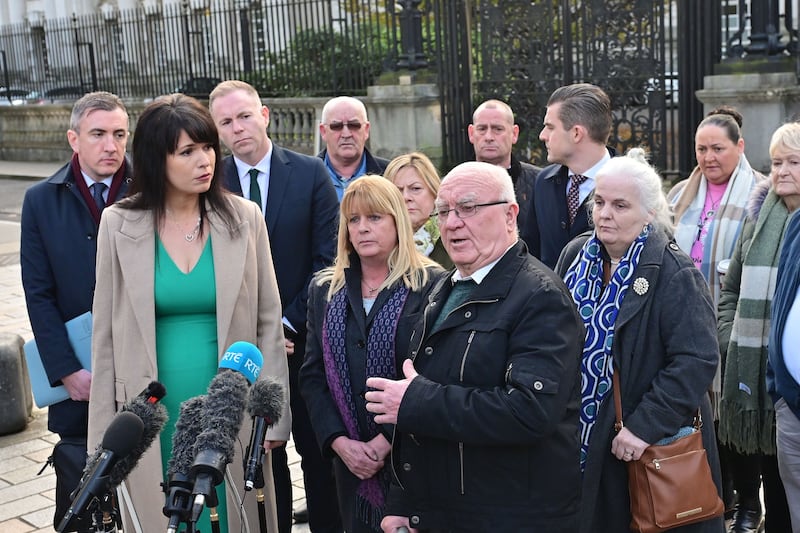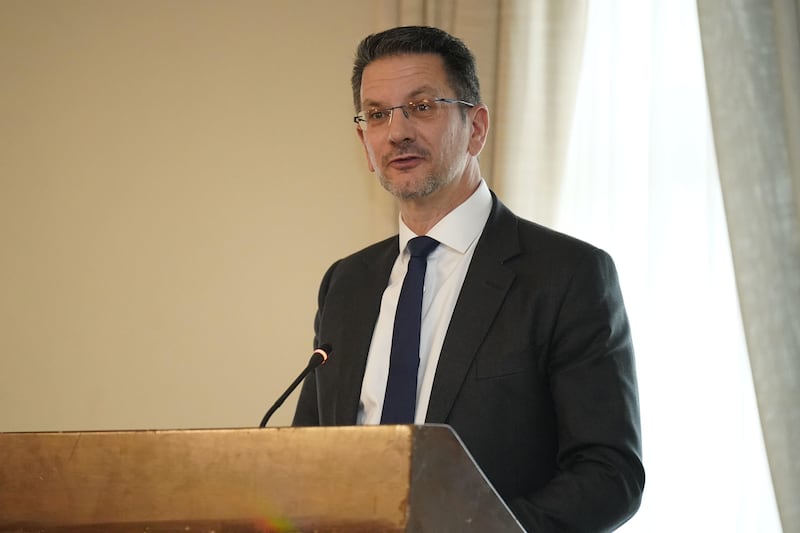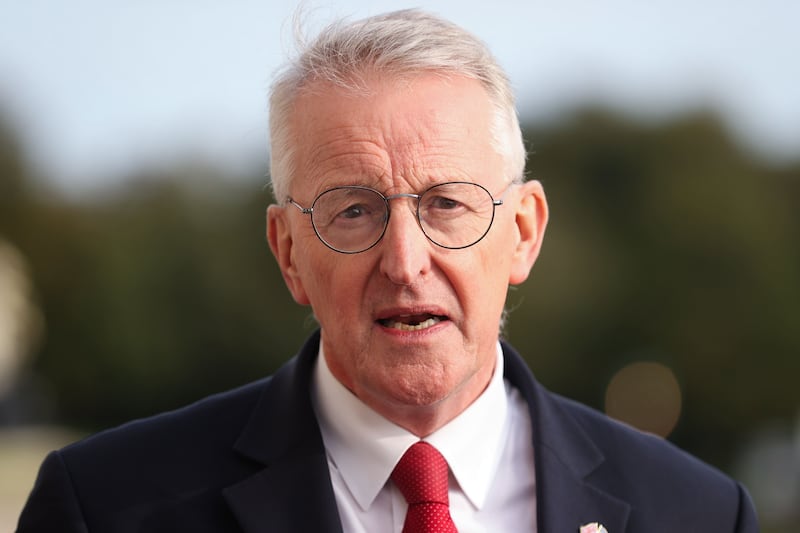Secretary of State Chris Heaton-Harris was today accused of delivering “breathtaking fake news” after claiming he was presented with no alternative to the UK Government’s legacy bill.
The Committee on the Administration of Justice (CAJ), citing the Stormont House Agreement and the government’s commitment to introduce legislation in line with the deal, said it was “simply not true no alternatives were presented.”
Separately, advocates for the families of those killed or injured by paramilitaries have expressed surprise at the secretary of state’s claim no alternative to the legacy proposals was presented to him.

Ulster Human Rights Watch, a Craigavon-based organisation, said it has since 2017 been taking part in all public consultations on dealing with the legacy of the past.
"On each occasion our organisation submitted proposals for an alternative,” said UHRW advocacy manager, Axel Schmidt.
Families of victims protested outside the Waterfront Hall, or ICC Belfast, on Wednesday, where Mr Heaton-Harris was attending the Northern Ireland Investment Summit.

On Sunday, Mr Heaton-Harris said: “Lots of people ranged against the Legacy Bill, but no-one has an alternative for what could possibly replace it, and no-one can tell me that the current situation that has been running for the last 25 years has been satisfactory to the families of victims either.”

North Belfast MP John Finucane, speaking after the Legacy Bill passed its final stage in the House of Lords, said the "British government has reneged on an international agreement to implement the legacy mechanisms agreed at Stormont House by the two governments and political parties in 2014 in a human rights' compliant manner."
Daniel Holder, CAJ director, described the SoS comments as "breathtaking fake news.”
He added: “The British Government dragged its feet on implementing the 2014 Stormont House Agreement, which was agreed by the two governments and most of the NI parties, and received widespread support in the NIO’s own public consultation.
“In the January 2020 New Decade New Approach deal the British government committed to legislation to implement the Stormont House Agreement ‘within 100 days’
“Two months later the new Secretary of State Brandon Lewis unilaterally tore up the Stormont House Agreement with a view to protecting soldiers from investigations.

“It is simply not true that no alternatives were presented – the UK Government refused to implement and reneged on an existing peace process agreement, including a treaty, with the Irish Government.
UHRW, which has no connection to the international Human Rights Watch, opposed the Stormont House Agreement but “submitted detailed proposals for an alternative,” Mr Schmidt said.
‘Since September 2022, when dealing with the Northern Ireland Troubles (Legacy and Reconciliation) Bill, UHRW has submitted 13 proposed amendments and 2 recommendations in order to make the legislation human rights compliant.
“Some of these proposals may have influenced minor amendments that were introduced in the House of Lords. However, the Secretary of State has not upheld them in the House of Commons."
Mr Schmidt added: "It is therefore not accurate for the Secretary of State to say that no-one presented him with an alternative."
An NIO spokesperson said that to provide better outcomes for victims "we must do things differently, being realistic about what we can best deliver for families over a quarter of a century after the Belfast Agreement".
“Since March 2020, the Government's specific proposals have continuously evolved, culminating in legislation completing parliamentary passage on 12 September. At no point during this period has a viable alternative been proposed, either by the Irish Government or the Northern Ireland parties. The Government has been clear why it does not regard the Stormont House Agreement proposals as viable," the spokesperson said.
“The UK Government fully acknowledges that the Bill contains uncomfortable compromises, and since it was introduced we have adopted several amendments, as a result of extensive engagement, that strengthen the Bill in key areas of raised concerns.”








